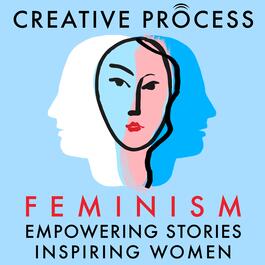
Building Worlds Beyond Modernity’s Double Fracture: A Discussion with Azucena Castro & Malcom Ferdinand
In this episode on Speaking Out of Place podcast Professor David Palumbo-Liu is delighted and privileged to be in conversation with Azucena Castro and Malcom Ferdinand. They start with a discussion of what Ferdinand calls the “double fracture”—the environmental division of humans from their connection to the biosphere, and the colonial division instantiated by white supremacism and patriarchy. He insists that we not see these two phenomena as separate, rather as intimately connected. This double fracture makes any attempts to solve either environmental violence or colonial violence ineffective. In her foreword to Ferdinand’s Decolonial Ecologies, Angela Y. Davis writes that as she read the book, she “recognized how perfectly his conceptualizations illuminate the frameworks we need for both philosophical and popular understandings of our planetary conditions today.” The conversation covers how art, film, and poetry can manifest some of those frameworks, and Azucena takes us into a deep discussion of this and reads two poems in Spanish and then in English translation and has Malcom gloss them for us. Azucena Castro is assistant professor at Rice University in Houston. Currently, she is a Swedish Research Council Postdoctoral Researcher at the Stockholm Resilience Center, Faculty of Science, Stockholm University. She held positions as a Postdoctoral Researcher in Latin American and Caribbean cultures at Stanford University and cultural geography at the Institute of Geography, University of Buenos Aires. Her scholarly work focuses on 20th and 21st-century Latin American cultural products through the lens of climate and energy justice, multispecies resistance, and anti-extractivist critique in the artivist scenes of South America, particularly, Southern Cone and Brazil. Azucena is the author of the book Poetic Postnatures. Ecological Thinking and Politics of Strangeness in Contemporary Latin American Poetry, Series SubAtlantic at De Gruyter (2025). She has edited the volume Futuros multiespecie. Prácticas vinculantes para un planeta en emergencia (Bartlebooth. Critical Spaces, 2023), and co-edited the Essay Cluster “GeoSemantics: Earthly Memories and Inhuman Becomings in the Global South” at ASAP/Journal. As part of her engagement with community-based research and collaborative filmmaking, she has co-developed the energy justice project “No aire, no te vendas” (Penn Environmental Humanities, University of Pennsylvania) focusing on winds in ancient cosmologies and human communities in the Afro-Wayúu territories of La Guajira, Colombia in the intersection of old and green extractivism. Malcom Ferdinand is an environmental engineer from University College London and doctor in political philosophy from Université Paris Diderot. He is now a researcher at the CNRS (IRISSO/University Paris Dauphine). At the crossroad of political philosophy, postcolonial theory and political ecology, his research focuses on the Black Atlantic and particularly the Caribbean. He explores the relations between current ecological crises and the colonial history of modernity. He published a book based on his PhD dissertation entitled Decolonial Ecology: Thinking of Ecology from the Caribbean World.( Polity 2021) that challenges classical environmental thoughts. He recently published an in-depth study of the pesticide contamination of martinique and Guadeloupe entitled S'aimer la Terre: défaire l'habiter colonial ( Seuil 2024). www.palumbo-liu.com https://speakingoutofplace.com Bluesky @palumboliu.bsky.social Instagram @speaking_out_of_place
From "Feminism, Women’s Stories: The Creative Process: Empowering Stories, Inspiring Women, Gender Equality, Women's Rights & Empowerment"


Comments
Add comment Feedback